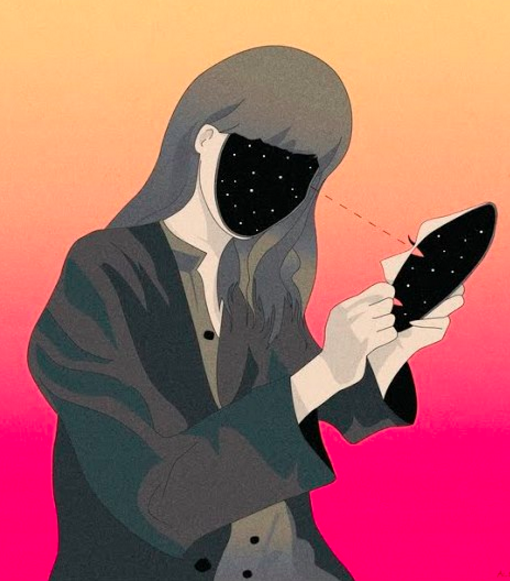“Magic is bloody untruth, but in it domination is not yet disclaimed by transforming itself into a pure truth underlying the world which it enslaves. The magician imitates demons; to frighten or placate them he makes intimidating or appeasing gestures. Although his task was impersonation he did not claim to be made in the image of the invisible power, as does civilized man, whose modest hunting ground then shrinks to the unified cosmos, in which nothing exists but prey. Only when made in such an image does man attain the identity of the self which cannot be lost in identification with the other but takes possession of itself once and for all as an impenetrable mask.” (Horkheimer and Adorno, Dialectic of Enlightenment)
“Whatever is profound loves masks; what is most profound even hates image and parable. Might not nothing less than the opposite , be the proper disguise for the shame of a god? A questionable question: it would be odd if some mystic had not risked something to that effect in his mind…A man whose sense of shame has some profundity encounters his destinies and delicate decisions, too, on paths which few ever reach and of whose mere existence his closest intimates must not know: his mortal danger is concealed from their eyes, and so is his regained sureness of life. Such a concealed man who instinctively needs speech for silence and for burial in silence and who is inexhaustible in his evasion of communication, wants and sees to it that a mask of him roams in his place through the hearts and heads of his friends. And supposing he did not want it, he would still realize some day that in spite of that a mask of him is there – and that this is well. Every profound spirit needs a mask: even more, around every profound spirit a mask is growing continually, owing to the constantly false, namely shallow , interpretation of every word, every step, every sign of life he gives.” — Nietzsche, Beyond Good and Evil
(image by Aldous Massie)
